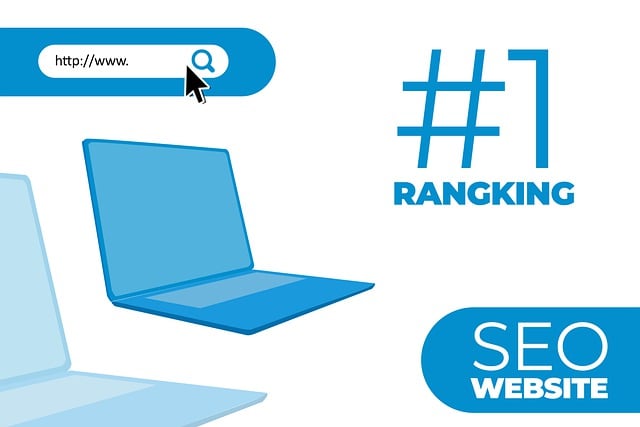Local SEO is a powerful tool for small businesses aiming to dominate their local markets. By optimizing online presence through location-specific keywords, Google My Business listings, reviews, and directory citations, businesses can outshine larger competitors. Key strategies include keyword optimization, NAP consistency, and engaging with platforms like GMB and reputable directories. User reviews boost credibility and visibility, while local keyword research targets specific customer needs. Building high-quality backlinks from relevant websites enhances trustworthiness, and performance analysis refines SEO efforts for maximum local market penetration.
In today’s digital era, local businesses face unique challenges in standing out amidst stiff competition. Understanding and implementing effective SEO Ranking Strategies is crucial for survival and growth. This article delves into the intricacies of Local SEO Ranking Optimization, guiding small businesses on navigating this competitive landscape. From unlocking the power of on-page optimization to leveraging Google My Business and user reviews, each section offers actionable insights for enhancing local search visibility and driving targeted traffic.
Understanding Local SEO and Its Impact on Small Businesses

Local SEO is a powerful tool for small businesses looking to thrive in their communities. It involves optimizing online presence to improve visibility and rankings in local search results, ensuring that potential customers find local businesses easily when searching for products or services nearby. By focusing on location-based keywords and leveraging online directories, Google My Business listings, and customer reviews, businesses can establish a strong local online identity.
This strategy is particularly impactful because it helps level the playing field for small operations against larger corporations. With effective Local SEO Ranking Optimization, small businesses can compete directly with industry leaders, capturing valuable local customers. By implementing tailored SEO ranking strategies that cater to local search intent, businesses can attract more relevant traffic, increase phone calls and foot traffic, and ultimately drive sales growth.
Key Components of Local SEO Ranking Optimization

Local SEO ranking optimization is a strategic approach that involves multiple key components to boost your business’s visibility and attract local customers. The first step is to claim and optimize your Google Business Profile (formerly Google My Business). This includes updating your profile with accurate, compelling information such as address, phone number, operating hours, and relevant categories. Regularly posting updates and engaging with customer reviews can significantly enhance your profile’s authority.
Additionally, implementing effective SEO ranking strategies like keyword optimization is crucial. Conduct thorough research to identify location-specific keywords that potential customers use when searching for businesses like yours. Incorporate these keywords naturally into your website content, meta tags, headers, and even in the URLs. Local citations from reputable directories and online platforms also play a vital role. Ensure your business listing is consistent across all relevant directories to maintain a strong local presence and improve your chances of ranking higher in local search results.
On-Page Optimization Techniques for Local Search Dominance

To achieve local search dominance, on-page optimization is key. This involves optimizing individual web pages to rank higher in local search results for targeted keywords and phrases. Start by conducting thorough keyword research specific to your location and industry. Incorporate these keywords naturally into titles, meta descriptions, headers, and content to ensure relevance and capture the attention of local search engines. Another critical on-page technique is optimizing structured data, such as Google’s Schema markup, to help search engines better understand your business and display rich snippets in results pages.
Consistent use of location-specific terms, including city names and relevant local landmarks, throughout your website content demonstrates authority and relevance to local audiences. Ensure your NAP (Name, Address, Phone number) information is accurate and consistent across all online platforms for seamless verification by search engines. Regularly updating content with fresh, high-quality material also signals to algorithms that your business remains active and engaged in the local community.
Leveraging Google My Business for Enhanced Visibility

Google My Business (GMB) is a powerful tool for boosting local SEO ranking strategies. By claiming and optimizing your GMB profile, you gain direct access to Google’s vast network, ensuring your business appears in local search results and maps. This visibility is crucial for attracting nearby customers who are actively searching for services or products within their immediate area.
A well-optimized GMB listing includes accurately reflecting your business information, such as address, operating hours, and contact details. Additionally, utilizing relevant keywords and descriptive language in your GMB posts and reviews can significantly enhance your local search rankings. Regularly updating your profile and engaging with customers through reviews fosters trust and encourages more people to choose your business over competitors, ultimately strengthening your online presence and SEO efforts.
The Role of Online Directories in Local SEO Strategy

Online directories play a pivotal role in enhancing local SEO ranking strategies for businesses. These directories, ranging from Google My Business to specialized industry-specific platforms, serve as digital maps that connect potential customers with nearby service providers. By optimizing directory listings, businesses can increase their online visibility and reach a targeted local audience. This involves ensuring consistent NAP (Name, Address, Phone number) information across all listings, incorporating relevant keywords, and engaging with platform-specific features like reviews and posts.
A strategic approach to directory submission includes identifying high-authority platforms relevant to the business niche. Focusing on these directories helps consolidate online presence and signals to search engines that a business is legitimate and locally established. Moreover, positive reviews and ratings within these directories boost credibility, indirectly influencing SEO Ranking Strategies by fostering trust among potential customers.
User Reviews: A Powerful Tool for Higher Rankings

User reviews are a powerful asset in any Local SEO Ranking Optimization strategy. Positive customer feedback can significantly boost a local business’s online visibility and credibility, which are key factors in achieving higher rankings on search engines. When potential customers read glowing reviews about a nearby service provider, it not only enhances their trust but also encourages them to consider that business over competitors.
Incorporating user reviews into your SEO ranking strategies can be as simple as encouraging satisfied patrons to share their experiences on popular platforms like Google My Business, Yelp, or Facebook. These third-party review sites are highly regarded by search engines, and the more quality reviews a local business accumulates, the stronger its signal of trust and popularity becomes. This can lead to improved organic search rankings for local keywords, driving more targeted traffic to the business’s doorstep.
Local Keyword Research: Unlocking Targeted Traffic

Local keyword research is a powerful SEO ranking strategy that can significantly boost your business’s online visibility within its specific geographic area. By understanding what potential customers are searching for in your locale, you can tailor your content and optimize your website to attract targeted traffic. This involves identifying relevant keywords and phrases that reflect local intent, such as “best pizza near me” or “local auto repair services.” Tools like Google Keyword Planner, SEMrush, and Ahrefs can assist in uncovering these valuable insights by analyzing search trends and volume within specific regions.
Focusing on local keywords allows you to compete effectively with nearby businesses for top search engine positions. Optimizing your website’s content, meta tags, and even local business listings (e.g., Google My Business) with these targeted terms enhances your relevance in the eyes of both search engines and potential customers. This strategic approach not only increases your online presence but also drives more qualified leads, ultimately contributing to better SEO ranking results for your local business.
Building High-Quality Backlinks for Local Business Growth

Building high-quality backlinks is a crucial aspect of local SEO ranking optimization, especially for small businesses aiming to thrive in their respective communities. These links act as digital endorsements, signaling to search engines that a business is reputable and worth featuring prominently in local search results. When other reputable websites within a similar niche or relevant local industries link to a business’s website, it strengthens its authority and visibility. This strategy forms the backbone of effective SEO ranking strategies for local businesses.
Focusing on acquiring backlinks from authoritative, relevant sources can significantly boost a local business’s online presence. This might involve guest blogging on popular industry blogs, contributing to local community forums, or collaborating with influencers in their area. Such efforts ensure that links are not only high-quality but also contextually relevant, which search engines favor. By consistently implementing these practices, businesses can steadily climb the ladder of local SEO rankings, attracting more potential customers along the way.
Analyzing and Tracking Your Local SEO Performance

Analyzing your local SEO performance is a crucial step in refining your search engine optimization strategies. Start by tracking your website’s visibility on local search results using tools like Google Analytics and Search Console. These platforms provide insights into keyword rankings, click-through rates, and user behavior for location-based queries. Identify which pages are performing well and which ones need improvement to tailor your SEO ranking strategies accordingly.
Regularly monitor local business directories and review sites for any discrepancies in your NAP (Name, Address, Phone number) information. Consistency across these listings is vital for enhancing local search visibility. Leverage the power of customer reviews by encouraging satisfied clients to leave positive feedback on relevant platforms. This not only boosts your online reputation but also signals to search engines that your business is trusted and reliable, contributing positively to your SEO Ranking Strategies.
